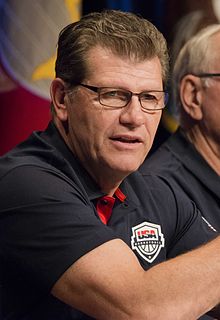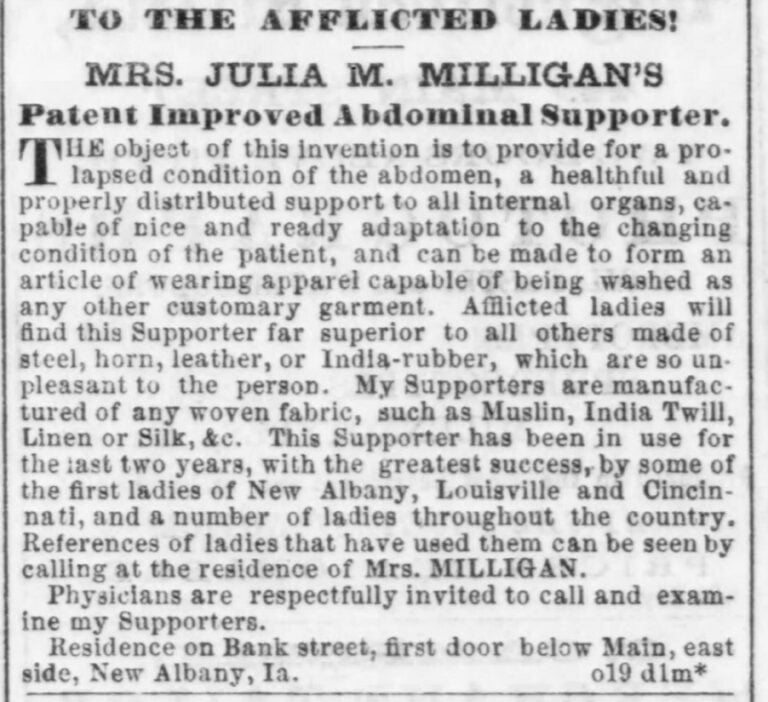University of Connecticut women’s basketball coach Geno Auriemma always has made it clear that he considers himself to be a basketball coach who happens to coach women, not just a women’s basketball coach. The subtle distinction is that he believes he could coach men, Martians or media knuckleheads and still win championships.
Yet whenever a quality men’s program is looking for a new head coach, Geno’s name never appears on the list of possible hires. Is it because he has let it be known that he’s happy where he is and has no interest in coaching men? Or is it because there’s a built-in prejudice against men and women who coach the women’s game?
It certainly can’t be because he lacks credentials.

After UConn’s 82-51 dismantling of Syracuse in Tuesday night’s NCAA title game, Auriemma now has 11 national championship rings. That’s one more than John Wooden won at UCLA. It’s more than Bob Knight, Dean Smith, Rick Pitino, Jim Boeheim and John Calipari combined.
Under Geno, the Lady Huskies now have been to nine consecutive Final Fours. They have won four in a row and are working on a 75-game winning streak, the third time they have put together winning streaks of 70 or more since Gino became their head coach in 1985.
The records go on and on. No basketball coach or football coach has ever dominated his or her sport the way UConn has dominated women’s basketball. That’s why he makes $3 million or so, great for a women’s coach but on the low end for the highest profile men’s coaches.
The knocks against him are that he’s an egomaniac and doesn’t relate well to the media. So? Those same characteristics certainly haven’t kept several men’s coaches from achieving iconic status.
There’s also the highly publicized feud between Geno and the second greatest women’s coach, the late Pat Summitt of Tennessee.
About 15 years or so ago, Summitt abruptly canceled the Lady Vols’ series with the Lady Huskies. She implied strongly that Auriemma was bending the recruiting rules. He adamantly denied it, and they two didn’t rekindle a relationship until it was learned that Summitt had been diagnosed with Alzheimer’s Disease.
But despite the grumblings that always surround any highly successful program, the Lady Huskies have never been hit with NCAA sanctions. Auriemma’s fans simply say he’s just a better recruiter than his rivals. And once he gets talented players, he coaches them up so they reach their potential.
The story goes that Breanna Stewart, who just starred for her fourth consecutive NCAA championship team, was trying to decide between UConn and Duke. She came to a game between the two and sat near the benches. After the Huskies zoomed out to a big lead, Auriemina sauntered over to her and whispered, “Maybe you ought to go to Duke – looks like they need you more than we did.”
That sold Stewart. On UConn. She found Auriemma’s personality and cockiness as irresistible as his incredible record for building winner. Against Syracuse, she got 24 points and 10 rebounds, a typical ho-hum dominating performance.
Maybe he has gotten calls from major men’s programs and hasn’t talked about it publicly. I don’t know. But I do know that if I were the athletics director at, say, Vanderbilt, I’d at least give him a call. What’s to lose?
Ask anybody in the men’s game why coaches of women’s teams are never approached, and the answers invariably border on sexism. You will hear that the men and women who succeed in the women’s game couldn’t recruit men. You will hear that the female players must be “handled” differently from men because they aren’t the same emotionally or temperamentally.
To me, that sounds like baloney.
From what I’ve read about Auriemma, he’s as tough and demanding as anybody coaching in the men’s game. He works his players hard. He can be profane. He’s a basketball coach who just happens to coach women.
I would think he could walk into any male recruit’s home, flash those 11 championship rings, and get the youngster’s attention. Every young player wants to play for a winner, and college basketball has never had a bigger winner than Auriemma.
Before this year’s Final Four, Dan Shaugnessey of the Boston Globe wrote a column saying that UConn had ruined the women’s game for him. He said he had even stopped watching the Lady Huskies on TV because there was no drama. Everybody knew that UConn was going to win.
Asked to respond, Auriemma obviously was steamed.
“Tell him not to watch then,” he said with a scowl and a shrug.
Nevertheless, Shaughnessey had a point. The Lady Huskies have dominated their sport more than any team ever. Name any dynasty you want, including the UCLA men’s teams that won 10 of 12 NCAA titles from 1964-75, and the UConn women have been better over a longer time period.
So what would happen if an A.D. from one of the five major conferences showed up in Auriemma’s office and threw a blank check on his desk to coach men’s basketball? Would Auriemma be tempted to prove that he could succeed in the men’s game? Or would he just say that he’s 62, happy where he is, and not ready to put his reputation on the line?
He has made it clear that he likes the women’s game because it’s more like how the men’s game was played in the 1950s, ‘60s and ‘70s, which Auriemma considers to be basketball’s golden era. Since very few women players can dunk, an offense must be based on more than just the pick-and-roll.
There’s also the fact that since the money isn’t nearly as huge in women’s professional basketball as it is in the NBA, there’s no one-and-done problem. Women’s players generally stay for four or five years and get their degrees. That’s another Old School virtue that Auriemma treasures.
Although Auriemma realizes that his records will have an asterisk (* women’s coach) next to them, and although he understands that he’ll never be held in the same high regard as the greatest men’s coaches, he resists the idea that women’s coaches, both male and female, are second-class citizens.
I agree. Basketball is basketball. Coaching is coaching.
Someday an athletics director will break the barrier that now exists between the coaches who work in the men’s game and those who work in the women’s game. He will offer a successful women’s coach the opportunity to transfer his or her skills to the men’s game. There will be much pressure on that person because failure will not be an option.
I hope that happens sooner rather than later. Even now, if I were an A.D. with a men’s program that needed a jolt of energy, I’d pick up the phone and call Geno before I’d hire some retread who belongs to the good ol’ boys club. Why not? He’s only the most successful college coach ever.
Billy Reed is a member of the U.S. Basketball Writers Hall of Fame, the Kentucky Journalism Hall of Fame, the Kentucky Athletic Hall of Fame and the Transylvania University Hall of Fame. He has been named Kentucky Sports Writer of the Year eight times and has won the Eclipse Award twice. Reed has written about a multitude of sports events for over four decades, but he is perhaps one of media’s most knowledgeable writers on the Kentucky Derby


















